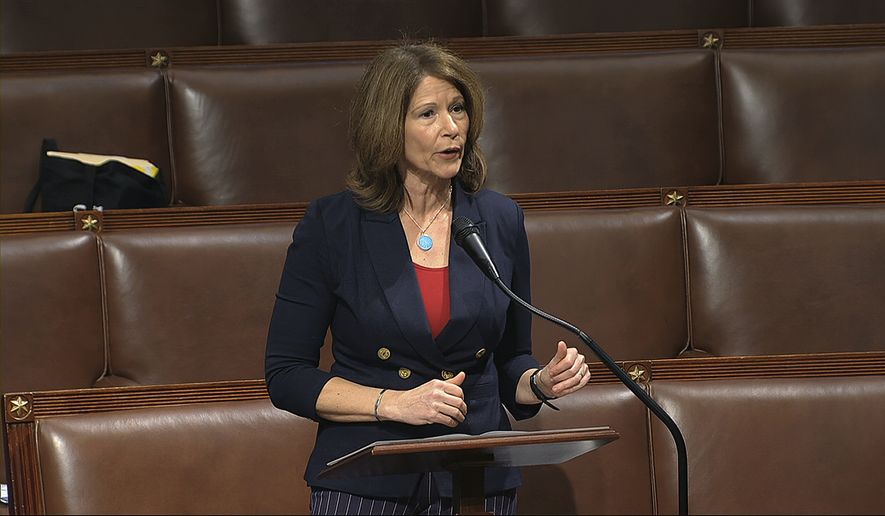’Tis the season for House retirements.
The natural attrition for incumbents who have decided to not seek reelection or seek a different office is starting to pick up speed.
So far, 17 Democrats and 12 Republicans have announced they are giving up their House seats.
The trend is expected to continue, with many eager to learn whether House Speaker Nancy Pelosi, California Democrat, plans to stick around.
John Couvillon, the founder of JMC Analytics & Polling, said the exodus is due to Democrats facing an uphill climb to hold onto the House majority next year. Indeed, polls show President Biden’s approval rating in the tank and Republicans leading Democrats on a generic congressional ballot.
“Life in the House is no fun when you are in the minority,” Mr. Couvillon said, likening the current political environment to those Democrats faced in the 1996 elections and Republicans faced in 2008. “If you are facing what is a bleak electoral future and you are getting up there in years, that to me answers the ’why now’ part of the question for several incumbents that chose to retire.”
Redistricting also looms large. Many House members are waiting to see what the new congressional maps look like before they make a final decision on their future, while others have already been given the bad news.
“There may also be a larger than normal list of retirements this cycle due to redistricting,” said J. Miles Coleman, of the University of Virginia’s Center for Politics.
Mr. Coleman views retirements as a barometer for the electoral climate, noting the exodus of Democrats in 2010 and Republicans in 2018 before the cycles ended up being rough for those respective parties.
“Swing district members like Ron Kind or Cheri Bustos leaving would catch my attention as a potential warning sign for Democrats,” he said.
Mrs. Bustos in Illinois and Mr. Kind in Wisconsin announced they were not seeking reelection earlier this year, making life more difficult for Democrats.
Just 18 states have finalized their redistricting maps, according to Mr. Couvillon’s count.
SEE ALSO: House Republican candidate recruitment spikes
“If you are faced with an unfavorable district and you think you might be in the minority, that to me is throw in the towel time,” he said.
The New York Times reported that the maps that have been finalized have added a net of five seats that Republicans should win while Democrats lost one. The GOP must flip five Democratic seats to capture control of the House.
Democratic Reps. Eddie Bernice Johnson of Texas, G.K. Butterfield of North Carolina, Jackie Speier of California and David Price of North Carolina have all recently announced they will not run again.
Rep. Peter Welch of Vermont, meanwhile, announced he was running for the Senate after long-time Democratic Sen. Patrick Leahy opted against seeking another term.
Republicans have been optimistic about their chances of flipping control of the House, and the growing list of Democrats calling it quits is adding to the excitement.
“The writing is on the wall: Democrats’ majority is doomed and smart Democrats are calling it quits while they still can,” said Michael McAdams, spokesman for the National Republican Congressional Committee, the campaign arm for House Republicans.
Nebeyatt Betre, a spokeswoman for the Democratic Congressional Campaign Committee, the campaign arm for House Democrats, said House Democrats have had “even fewer retirements than Republicans faced at this point in the last midterm cycle.”
“Incumbent or not, we’re going to make the case to voters that while Democrats have passed legislation that will significantly lower costs for workers and middle-class families, extremist Republicans have spent the last year promoting junk science that’s prolonged the pandemic and voting to block legislation that will reduce inflation,” she said.
The exodus is expected to increase over the holiday season after lawmakers get a chance to go home and unplug with their family and friends.
The DCCC and the NRCC are expected to lean on members to make their decisions sooner rather than later to give the groups time to recruit candidates.
Both parties, meanwhile, are raking in the cash.
The DCCC has raised $112 million through October, according to its later financial filing, and has just under $68 million in cash on hand. The NRCC has pulled in $114 million and has roughly $68 million in cash on hand.
• Seth McLaughlin can be reached at smclaughlin@washingtontimes.com.




Please read our comment policy before commenting.